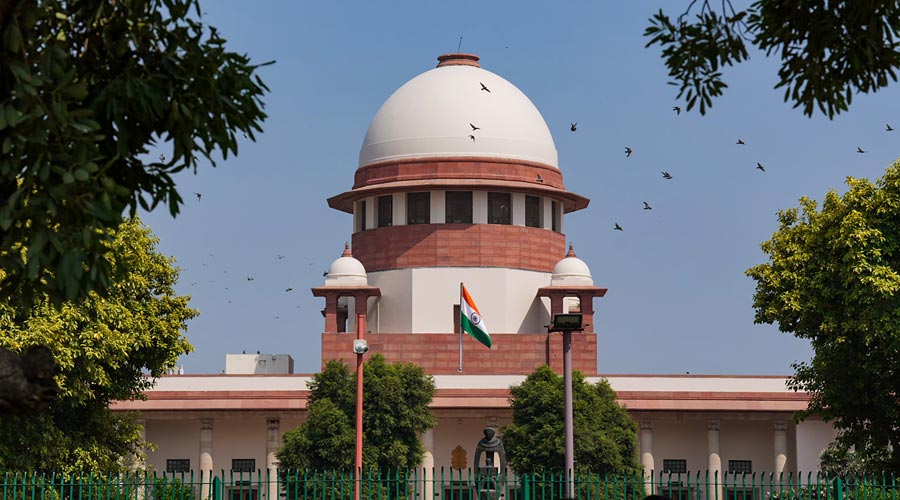The Supreme Court on Friday directed all states and Union Territories to register suo motu FIRs against anyone delivering hate speeches irrespective of their religion, and warned that non-compliance would invite contempt proceedings against the officials responsible.
“We make it clear that such action be taken irrespective of the religion of the maker of the speech so that the secular fabric of Bharat as envisaged by the Preamble of our Constitution is preserved,” the bench of Justices K.M. Joseph and B.V. Nagarathna said.
This, in effect, extends countrywide the operation of an order by the same bench in a different case last October, when it asked the police forces of Delhi, Uttarakhand and Uttar Pradesh to register suo motu FIRs against hate speeches.
At that time, the bench was dealing with petitions filed in the context of genocide calls being allegedly sounded against Muslims at Dharam Sansads held in these three northern states.
Friday’s order came on a petition moved by Kerala-based activist Shaheen Abdullah and others seeking contempt proceedings against Maharashtra government officials for failing to curb hate speeches.
The petitioners have cited earlier apex court judgments — such as the 2018 Tehseen Poonawalla judgment — that directed all states and Union Territories to take stern action against hate mongers.
“We direct that states… shall ensure that as and when hate speech happens it attracts offences under Sections 153A (promoting enmity between different groups on grounds of religion, race, place of birth, residence, language, etc, and doing acts prejudicial to maintenance of harmony, offence committed in place of worship etc); 153B (imputations, assertions prejudicial to national integration); 295A (deliberate and malicious act intended to outrage religious feelings of any class by insulting its religion or religious beliefs) and 505 IPC (statements conducive to public mischief, statements creating or promoting enmity, hatred or ill-will between classes),” the bench said on Friday.
During the hearing, Justice Joseph remarked: “This is something which goes to the heart of our republic. And about dignity of people of this country…. It is an offence affecting the fabric of the nation.”
Several Hindu groups and solicitor-general Tushar Mehta complained that petitions were being filed targeting only one community.
Justice Joseph emphasised: “We did not direct that action should be taken against Hindu community or Muslim community. What we said was (that) irrespective of the religion, action should be taken.”
At one point, he said: “We want to say something. Both of us are apolitical. We don’t care about Party A or Party B. We are only on Constitution.”
Mehta responded: “We are absolutely clear on that. No doubt about it.”
Senior advocate Sanjay Parikh, representing petitioners who have joined the case, said: “In some states, for example, Maharashtra, nobody is taking action. I don’t want to name the person. Despite the Supreme Court’s order, no action is being taken. The statements are shocking. There are MPs and MLAs sitting in those meetings.”
However, Justice Nagarathna said: “That is why we said, don’t start from apex court. There is a structure.”
What she was suggesting was that complainants should first lodge an FIR with the local police and, if the force fails to act, approach the jurisdictional magistrate for a direction to register an FIR.
Asked by the bench what action the Maharashtra government had taken against hate mongers, additional solicitor-general S.V. Raju said: “We have identified some cases and FIR (has been) registered. Even in cases which the petitioners have not pointed out, we have registered FIR.”
Justice Joseph shot back: “That is your duty.”
At the last hearing on March 29, the bench had described the states as “impotent” for failing to rein in hate speeches.
It had cautioned that this trend could be ended only when politics and religion were segregated from the national discourse, and asked why we should have a State when it cannot act against hate-mongers.
“Every day, fringe elements are making speeches to vilify others including on TV and public forums. The problem arises when politicians are mixing politics with religion. The moment politics and religion are segregated this will come to an end. When politicians stop using religion all these things will come to a stop,” the bench had observed while refusing to discharge the Maharashtra government in the contempt case.











